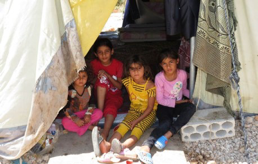Principles of Catholic Social Teaching

The permanent principles of the Church’s social doctrine . . . are: the dignity of the human person, the common good, subsidiarity, and solidarity. These principles, the expression of the whole truth about the human person known by reason and faith, are born of “the encounter of the Gospel message and of its demands summarised in the supreme commandment of love of God and neighbour in justice with the problems emanating from the life of society”.
Compendium of the Social Doctrine of the Church
The moral dimension of the economy shows that economic efficiency and the promotion of human development in solidarity are not two separate or alternative aims but one indivisible goal.
The focal point of Catholic Social Teaching is the human person. As Christians hold the belief that human beings are made in God’s image and likeness, therefore the human person has an innate dignity that must be honoured by recognition of, and respect for fundamental freedom, dignity and human rights. Consequently, by recognising this quality and value in all human beings, the teaching rejects any policy or system which reduces people to economic units or passive dependence.
The common good… is the sum of those conditions of social life which allow social groups and their individual members relatively thorough and ready access to their own fulfilment.
People exist as part of society. Every individual has a duty to share in promoting the welfare of the community and a right to benefit from that welfare. This applies at every level: local, national and international. Public authorities exist mainly to promote the common good and to ensure that no section of the population is excluded.
See Gaudium et Spes, Sollicitudo Rei Socialis and Laudato Si
Solidarity… is not a feeling of vague compassion or shallow distress at the misfortunes of so many people, both near and far. On the contrary, it is a firm and persevering determination to commit oneself to the common good; that is to say to the good of all and of each individual, because we are all really responsible for all.
As members of the one human family, we have obligations to promote the rights and development of peoples across communities and nations. Solidarity is the fundamental bond of unity with our fellow human beings. All are responsible for all. In particular, the rich and powerful have responsibilities towards the poor and marginalised, as fidelity to Christ means seeing him above all in the faces of suffering and wounded people – termed ‘the option for the poor’. National and international structures must reflect this obligation to the oppressed, the weak and the poor. The principle of solidarity moves us towards encounters with others. It is a proactive notion, one which concerns not only the quality of our relationships but also invites an obligation to address injustices suffered by others.
See Populorum Progressio, Sollicitudo Rei Socialis, Evangelli Gaudium and Laudato Si
All power and decision-making in society should be at the most local level compatible with the common good. Government should not over-extend its reach into local or personal affairs. Rather, the State should help local groups and not try to control or replace their decision-making abilities. This adds to a richness and vibrancy in society whereby local expertise, knowledge and skills contribute to the running of communities. Subsidiarity will mainly mean power passing downwards, but it could also mean passing appropriate powers upwards. The balance between the vertical (subsidiarity) and the horizontal (solidarity) is achieved through reference to the common good.
